" I am a student at King Middle School. I come from Norway and I arrived in the USA January 4th, and I am staying in Berkeley, CA. for 7 months. My mom and I came because of mom’s work. I am doing an I-search on The Vikings and I wondered if you could help me and answer me these questions. ...
My inquiry for this I-search is: “Who were the Vikings, and what are they famous for?”
So - I have to make a few guesses here. 'Middle School' means you are between grade 6 and 9?
Given that you are originally from Norway, you obviously have a better background education than the other students. Most especially when it comes to anything outside the USA! Your English is excellent, and you have asked some more in depth questions.
Now, I do not know exactly what an 'I-search' is. As it is always better for a student to have to dig a little, I will be supplying you with some web site links for you to find some of the answers you are looking for.
First, I would recommend you try to get a copy of a very good general book -
James Graham-Campbell, ' The Viking World' *
(published by) Ticknor & Fields 1980
I think you would also find many of your answers in the 'Teachers Guide' I have put up on my web site.
Since there is better details on the guide above, I will only put short answers to your questions below.
Why did you decide to study The Vikings?
I was interested because of a film I saw (at about your age) 'the Vikings' with Tony Curtis, & Kirk Douglas. It was made in 1958 (!) but actually had some good details for the time it was made. When I was in art school, I started historic re-enactments, and naturally chose the Viking Age. Everything went from there...
Where did you study The Vikings?
I did not take any courses (which I think is what you mean). I studied on my own, first from books, later from going to museums. I also have learned a lot from making copies of Viking Age objects, then using them to see how they work.
When did you start study them?
Serious research started maybe into the 1980's. By the 1990's I was working on major museum projects (like the Encampment for Parks Canada).
What are some important dates in the Viking period?
A problem here (which you coming from Norway will understand). Many of the 'important dates' relate to the history in England, not actually Scandinavia - where the Norse are actually from! The two dates most commonly used are 793 (the sacking of Lindisfarne Monastery) as the beginning of the Viking Age, and 1066 (the Battle of Hastings) as the end. But of course these people did not just come out of nothing, and still were around afterwards.
The founding of Iceland (about 875) and the exploring of North America (about 1000) are also important (to me anyway). There are many important battles and famous kings over the Viking Age...
Was there any famous Viking?
Lots! (but I'm going to leave finding those to you) Some names you could look up: Harold Bluetooth , Fredys Eiriksdottir, Erik the Red, Erik Bloodaxe...
Who were The Vikings?
Ah - the important question!
Correctly speaking - going a Viking is a job. A part time job. A part time summer job. A part time summer job for young men.
As you suggested in your letter, being a Viking is being a raider. But most certainly not everyone living in all of Scandinavia was a raider! Someone had to keep the farms, make the clothes, build the ships, create the weapons. So think of the modern world - how many people actually are soldiers, even in the USA today when there is a war on? Not that many when you consider the whole country. Being a Viking was only a job for a very few people.
The people from early Scandinavia, what we call 'the Norse' had similar languages, religion, ideas about the world, writing method (the runes), taste in clothes and art work, special craft skills. These all were different than those in the rest of Europe. So people outside Scandinavia bunched them altogether - then blamed them for the raids on the churches (although other people were doing it too!)
Where did The Vikings come from?
The countries of Scandinavia - thats Denmark, Norway and Sweden. Each country (as you know) were somewhat different, and each group tended to go different places. The Danes to the south west - England and France. The Norwegians to the north west - Scotland, Ireland, Iceland (and eventually Greenland and Canada). The Swedes to the east - Russia.
Now there had been people in Scandinavia for a LONG time (longer than in England!) So there were definitely Norse people before what we call now the Viking Age.
How did The Vikings travel around?
Primarily by ship. (see below)
Is it true The Vikings came to America before Columbus?
If yes to the last question (Is it true The Vikings came to America before Columbus?), how do we know that?
Encampment at L'Anse aux Meadows NHSC
You have to be careful with the question. People living in the USA tend to say 'America' as if only the USA existed. There is no real proof that the Norse ever came to the USA itself. There IS proof that the Norse, most specifically Leif Eiriksson, did come and explore Canada - the area around Labrador, Newfoundland and the Gulf of St Lawrence.
At the top end of Newfoundland, at a place called L'Anse aux Meadows, were found the remains of a number of Norse style houses, along with a few small objects. These prove that a kind of exploration base camp was built and lived in over a couple of winters some time about 1000 AD. We know that these explorers did travel further south, as butternuts from New Brunswick were found there as well.
Vikings - North Atlantic Saga
Other objects from the Norse have been found in Canada's high Arctic. There is also timber pieces found on Greenland that originally came from Labrador. Remember that there were Norse people living in Greenland from about 980 through to at least 1420 AD!
Where did The Vikings travel?
all by ship!
West - as far as Canada (New Brunswick)
North - they already lived in the north!
East - to Russia, then down the rivers all the way to the Middle East
South - along the coast, down past Spain and into the Mediterranean Sea
What were thralls?
Thrall is another word for slave. Now, talking to someone from the USA, you have to be careful here. Slave in the Viking Age does NOT mean the same thing as slave does to a modern American.
First, the Norse made slaves of people just like them - other white people living in the same part of the world. Like the English and the Irish. Sometimes it was Norwegians grabbing Danes (or the opposite).
Thralls lived at the bottom of the pile - but might very well have lived in the same long house that the 'masters' did. Thralls might earn their freedom through hard work. Sometimes a person might have to serve as a thrall for a time as part of a legal judgement. So in some ways you can think of being a thrall more like a job. A really bad job, but still a job.
How did The Vikings live?
Big question:
World of the Norse
As you might guess, it depends on where and exactly when. Many people in the homeland countries lived on large extended family farms. Most farms were raising animals. Houses were very large - with a lot of people packed into the space. The individual farms were often fairly far apart.
At the beginning of the Viking Age there were not very many towns, but more of these started and got larger over the 200 years. In the towns houses were long and narrow, and packed in tightly to each other.
Who went on the trips?
Raids would be all men
Merchants would primarily be men, but might have their wives along (smaller crews as well)
People also used ships to settle new lands. On those trips it would be whole families with their livestock.
How were children and women treated by the Viking men?
A woman had more rights under the law in the Viking Age than a woman living in the USA did in 1900! A woman could divorce, own property, pick her husband and there were laws against assault. Not equal rights, but maybe 60 % of what a man could do.
Up until modern times, there was no such thing of childhood like we think of it. People were expected to do as much as they could, and if they were responsible they were treated 'as an adult'. A girl would be thinking of marriage by 16 (maybe younger). A boy who was large enough might go on his first raid at 14. No school of course, you would learn by working with your parents.
Who was Leif Ericson, and why is he so famous now?
Leif is the son of Eirik the Red. Leif is the one who commanded the first large exploration of 'Vinland' (what he called it). The largest of the houses built at L'Anse aux Meadows is thought to have been his own house.
Of course he did not 'discover' North America - as there had already been people living here for a good 10,000 years!
Its important to remember that the Norse did not try to make a colony or seriously 'settle' in North America. It was just too far and there were not enough people living in Greenland to spare.
What did The Vikings do?
EVERYTHING!
Not sure exactly what the question is?
The Norse were master ship builders and fearless seamen.
They were extremely skilled at all kinds of textiles and metalwork.
Our days of the week are Norse (Tuesday, Wednesday, Thursday, Friday)
Much of our ideas of law come from the Norse.
Did the Vikings just travel around to see The World, or did they have a hobby or goal to reach each time they went out on the Sea?
This is a hard question, as it is always a guess to know how people thought so long ago. In the past folks almost always believed different things that what we think is true or right today.
The Norse were very practical, very adaptable. They did travel far, and were not afraid to voyage to new seas and lands. But I would think they would always have a firm idea what they were trying to do.
How did The Viking boats look like?
Viking Ship Museum
thats the web site for the Viking Ship Museum in Roskilde Denmark - your best place to start on ship information.
I also have some images I took there on my blog
http://warehamforgeblog.blogspot.com/2008/05/viking-ships-at-roskilde.html
In which part of the country did The Vikings live and where in Europe/Scandinavia did they live?
I answered that partially under 'where did they travel'
At one point there were so many Danish people who had moved to England that the most of that country was called the 'Danelaw'. Danish law was more important than English!
Many cities in Ireland were in fact started by the Norse - Dublin, Cork, Limerick
Iceland and Greenland of course
Part of France is called 'Normandy' - Land of the Northmen
Russia's name comes from the group from Sweden called the 'Rus' who took it over.
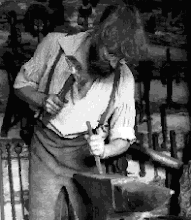
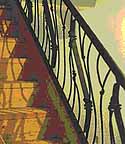
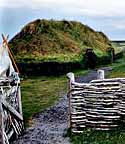
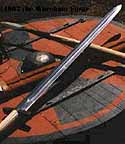
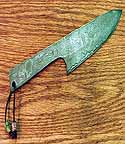















1 comment:
Well, I'm glad he asked! I learned several new things, and I appreciate that you take the time to help educate not only young people, and us older ones too!
Best regards,
Albert
The Rasch Outdoor Chronicles.
The Range Reviews: Tactical.
Proud Member of Outdoor Bloggers Summit.
Post a Comment